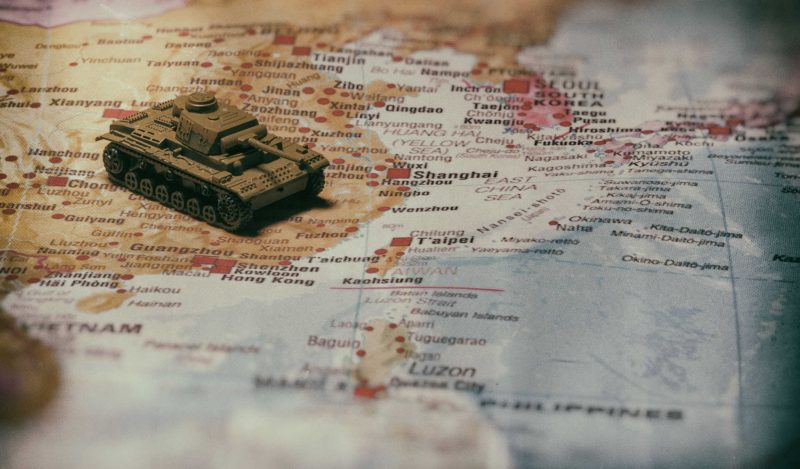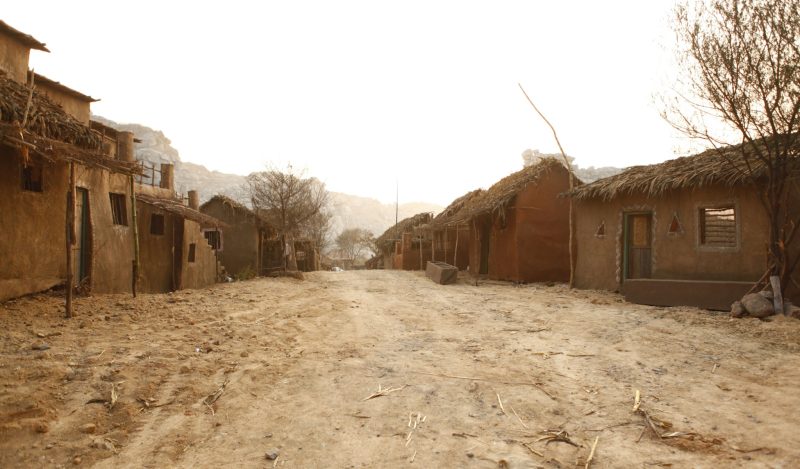Each year, I have the pleasure of interviewing hundreds of applicants to the programs of an educational institute, of which I am the Academic Dean. In those interviews, I ask questions that motivate prospective students, mostly aged 15 to 18 years, to share opinions that they care deeply about but feel unable to discuss with their peers. I thus gain insight into a generation of whose experiences I (a gen-Xer) would otherwise be largely ignorant.
This year, the most consequential discovery I made as a result of 700 such interviews concerned what I now believe may be the greatest danger facing the world. Subsequent events have strengthened my conclusion.
Whereas extraordinary censorship has been the norm in China for many years, 2022 was the first year in which a large proportion of Chinese interviewees shared with me their concern about the ubiquity of specifically nationalistic propaganda and the complete removal of contrary content in all domains in their country. An example cited by many Chinese applicants is the wholesale rewriting of history textbooks to delete any references to events that cannot be red-washed (my word) to fit a “Century of Humiliation” narrative. I was repeatedly told that the average Chinese person is now exposed to no other historical perspective.
All of that is very much in the CCP’s direction of travel with respect to controlling information available to its people so, while very sinister, it is perhaps unsurprising. What shocked me more were the accompanying reports of relatives, friends or acquaintances having their passports clipped upon returning to China from foreign trips – without any reason given by the Chinese border authority. The clipping prevents future travel outside the country.
My immediate inference from these stories, taken together, is that China is preparing its population for war somewhat in the style of North Korea. The entire nation is being rapidly and comprehensively indoctrinated to regard themselves primarily as victims of injustices perpetrated by the West that demand historical redress. Moreover, as the Chinese middle class has grown apace, more people have been traveling for business and pleasure in recent years; the government is now stopping or even reversing this trend.
This limits the direct contact of Chinese with foreign people, cultures and information sources, ensuring that when a conflict comes, Chinese citizens who have a clearer and bigger picture than their countrymen because they have been exposed to foreign perspectives and information will be too few and far between to challenge popular support for the CCP and action against targets regarded as backed by the West. (The effectiveness of this strategy has already been evidenced by the massive popular Chinese support for Russia’s action in Ukraine by virtue of its being framed to them as an action against the West.)
All of this was recently reinforced when China’s President Xi Jinping (re)committed to the annexing of Taiwan by violent means if necessary. Tyrants with foreign designs often tell the world what they are going to do and why. Their victims would usually have done better to have taken their words more seriously and prepared sooner.
If most of the developed world decides to punish China for aggression against Taiwan in the future, China will be able to expect its population to feel at least some economic hardship. In such circumstances, the Chinese population’s near total assent to the “China-as-long-suffering-victim of the West” narrative, combined with the absence of internal voices offering a counternarrative, will be necessary to ensure that such a population will respond by cleaving even more strongly to the CCP’s nationalist ideology and its cause against any country, such as Taiwan, that is supported by the West.
Test that claim against history: the instigators of almost all modern wars have pleaded victimization at the hands of those they were about to fight. Moreover, when such claims are noticed by the wider world, either war is likely to follow or its probability increases to the point that international politics become dominated by its likelihood.
A Single China and a Double Standard?
The position of the West on cross-Strait relations is, at best, inconsistent: the USA and its allies assert a general principle of self-determination while denying Taiwan’s right to the very same.
Some claims of self-determination are complicated by a current or recent period of jurisdiction by an entity against which a population seeks to assert such a claim. No such complication obtains in the case of Taiwan, which – if it were to declare its independence – would be seeking to establish de jure what is already true de facto: Taiwan is a self-governing, independent country, and has been for generations.
Furthermore, the whole world, including the Western nations that no longer officially recognize Taiwan, did recognize the government of Taiwan until 1971, when they switched their recognition from the Republic of China (Taiwan) to the People’s Republic of China (mainland China) under United Nations Resolution 2758. While that decision was made for understandable reasons of the time, it did not require the indefinite denial of Taiwanese self-determination (which, it should be said, was a legal right of the people on Taiwan at the time that the decision was made).
Factors that influenced the ending of Taiwanese representation at the United Nations included prevailing Cold War-related calculations and the unreasonable claim of sovereignty over (mainland) China that was asserted by “the representatives of Chiang Kai-shek.” Notably, it was only those representatives – not Taiwan, the Republic of China, Formosa or the country of Taiwan per se – who were explicitly excluded from the UN in Resolution 2758.
The situation today seems to be entirely the other way around inasmuch as it is now the government of (mainland) China that unreasonably claims sovereignty over a modern, democratic nation over which the Chinese state has not exercised jurisdiction since it ceded Taiwan to Japan in 1895 under the Treaty of Shimonoseki.
Western powers have launched large-scale military operations in support of less defensible rights of self-determination and democracy than those of an independent Taiwan. The Chinese, like the rest of the world, can see the blatant double standard of the reluctance of the West to use its favorite political d-words – defense, self-determination and democracy – only in sentences that also happen to include the word “Taiwan.”
In that lack of moral consistency also lies a lack of strategic credibility.
Given the United States’ almost entirely disastrous track record of involving itself in foreign countries and conflicts that pose no direct threat to it, no one with a friendly attitude to either Taiwan or the US should hope for the former to rely on the latter to defend itself against China. For that reason, and other moral and strategic reasons, the US and the rest of the world should support any Taiwanese attempts to acquire the only means of defense that in the long run could possibly deter an attack in the first place – a maritime nuclear deterrent.
A Strait Game
Taiwan has for a long time been a nuclear threshold state, meaning that it could quickly build a nuclear weapon. In the last century, it was close to doing so but agreed to close down all such programs largely under American pressure. Certainly, nuclear nonproliferation is a worthy global goal and Taiwan may be well regarded as particularly noble for agreeing to the commitments of the Nuclear Non-Proliferation Treaty (NPT) even while all of its other signatories refuse to acknowledge its legal capacity to enter such commitments.
But nobility won’t save Taiwan when the mainlanders arrive.
Taiwan is the only country that faces real and present danger from a nuclear-armed power that denies its right to exist.
The long-run power disparity between Taiwan and China is so great that Taiwan simply has no realistic prospect of defending itself against a patient and determined China. And if Chinese history and politics teach anything at all, it is that the authoritarian Chinese can be patient.
This power imbalance means that Taiwan can claim to be the only country that is under an existential threat that can be countered with a threat of the use of weapons of mass destruction. This follows from the simple fact that only WMDs can reliably provide a means of inflicting damage of a magnitude sufficient to change the payoff matrix of Chinese-initiated aggression with the declared intent of the elimination of Taiwan as a sovereign entity.
In short, if any country has a moral and strategic argument for maintaining a nuclear deterrent, then Taiwan does.
The West has understandable reasons for refusing to say that it will treat an attack on Taiwan as it would an attack on any other peaceful country, even as it knows that such an attack is being planned. However, it would be contemptible, while refusing to do so, simultaneously to discourage that small, vulnerable democracy from doing the only thing that it can do to give itself a reasonable chance of preventing its ultimate demise. Such simultaneous refusal to support to whatever extent necessary and discouragement of the most robust possible self-defense would be “contemptible” because it would amount to a hypocritical demand that the Taiwanese pre-emptively accept their destruction contrary to every principle that we espouse.
Put another way, if the Taiwanese were to decide they have been too good for their own good in agreeing to follow a treaty – the NPT – whose cosigners deny their legal capacity to be bound to it, then we in the West would have to agree with them or admit that we never really believed in Article 1, Clause 2, of the United Nations Charter after all:
To develop friendly relations among nations based on respect for the principle of equal rights and self-determination of peoples, and to take other appropriate measures to strengthen universal peace;
Indeed, Taiwan’s present situation may be the only one in the world in which each element of Article 1, Clause 2 (equal rights, self-determination and universal peace) actually demands a nuclear deterrent.
It’s not for anyone outside Taiwan to tell the Taiwanese what to do. Perhaps a nuclear weapon is the last thing they want. In any case, the choice is theirs. But they have every right to force the West’s hand and then, based on the cards we show, do what is necessary to save themselves – because the Chinese are coming.
To do this, the Taiwanese do not need to declare Independence. Rather, they need only clarify that while they are not recognized as a nation, they have no commitment under the NPT. The rest of the world can then make its choice. It can either recognize Taiwan and legitimately demand that the newly recognized country meets the NPT obligations that would then legally bind it, or it can refuse to do so and get out of the way of, and perhaps even facilitate, the Taiwanese acquisition of its nuclear deterrent should it pursue that path.
If a desire for American goodwill is preventing Taiwan from pursuing the one best chance it has, then shame on the United States for making its support conditional on Taiwan’s giving that chance up. And if that is the case, let us hope that it shall not be for much longer.
To be fair, no leader wants to face the kind of decision contemplated here, and President Tsai Ing-wen would want to seek the advice of those who know much more about the matter than this writer before making it. On that score, I suspect a few Ukrainian consultants with some helpful insights to share might make themselves available.
Published under a Creative Commons Attribution 4.0 International License
For reprints, please set the canonical link back to the original Brownstone Institute Article and Author.









